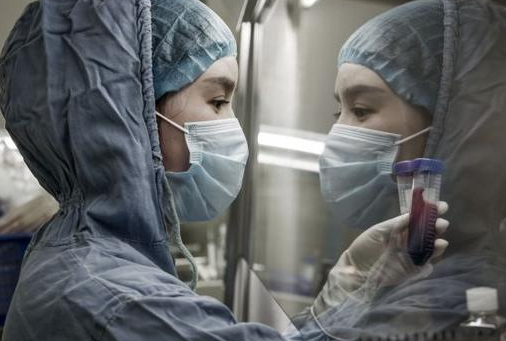US media said that since March, the 53-year-old dean of the Hangzhou Cancer Hospital and oncologist, Wu Shiyi, have been trying to treat cancer patients with a promising new gene editing tool Crispr-Cas9. This tool was designed by American scientists and has attracted global attention since the 2012 media report said it could be used to edit DNA. According to the US Wall Street Journal website reported on January 23, the team of Wu Shiyi’s hospital took blood from patients with esophageal cancer and sent the blood to a laboratory using high-speed rail. The laboratory used Crispr-Cas9 to remove an interference against the immune system. The genes of cancer ability, thereby improving the disease-resistant cells, and then injecting these cells back into the patient, hoping that the reprogrammed DNA can eliminate cancer. In contrast, the first Crispr human trial outside of China has not yet begun. The University of Pennsylvania has spent nearly two years resolving the requirements of agencies such as federal agencies, including various safety checks that minimize patient risk. According to the report, China is undoubtedly the first country to use Crispr for human trials. The National Library of Medicine database records nine trials in China. The Wall Street Journal found that there were at least two hospital trials, and at least 86 Chinese patients were genetically edited, which were also in line with China's industrial policy. China is striving to bring some domestic industries to the international stage. Genetic editing is included in the five-year planning target set by China in 2016. Many Crispr trials have emerged after this call. Carl June, chief scientist of the Crispr research team at the University of Pennsylvania, said China may surpass the US in applying medical technology pioneered by Western countries such as Crispr. He said that the United States is in a dangerous position and may lose its leading position in the biomedical field. He believes that there is regulatory asymmetry between China and the United States, but Crispr science is at the forefront, and it is difficult to find the ideal balance between rapid advancement and ensuring patient safety. In Europe, such trials have not yet begun. Crispr Therapeutics AG announced in December last year that it had submitted an application to a European regulatory agency to initiate a clinical trial. The spokesperson said the regulator is evaluating the application and the company plans to launch a clinical trial this year. According to the report, Crispr-Cas9 technology is easier to use and less expensive than other gene editing methods. Laboratory data suggests that this technique can correct some glitch that causes incurable diseases, but rewriting genes can encounter various scientific and ethical problems. The first is that Crispr may bring unexpected and irreversible changes to humans, and it may take many years to come out. Wu Shizhen also agreed that this technology may be risky and that Crispr is a double-edged sword. He said that others see potential adverse consequences and they see potential effects. He said that speed is the key, his patients are already on the line, and if you don't try it, you will never know the answer. The report said that at first, the United States seemed to be ahead. The Crispr trial, funded by the University of Pennsylvania, became one of the first trials in the field to enter the public eye in 2016, targeting patients with multiple myeloma, sarcoma, and melanoma. Later in 2016, there were media reports that a Chinese hospital had begun the world's first Crispr trial, and Dr. June of the University of Pennsylvania was undergoing a more rigorous process. June said the University of Pennsylvania study will test whether Crispr is safe, rather than testing whether it can cure patients. Wu Shizhen said that he believes that saving patients' lives is the most important thing, and his terminal patients are in urgent need of treatment. He initially tested Crispr on three patients and has now modified the genes of more than 10 patients. He said he plans to do more tests on patients with lung cancer and pancreatic cancer. According to the report, not all Chinese Crispr tests can be easily approved. Liu Bo, who appears to be the chief investigator in the world's first Crispr human trial, said that the hospital's ethics committee spent several months evaluating it and asking him to submit additional materials before approving his trial. It is expected that more Crispr tests will be launched in the next 18 months, and listed companies founded by Crispr-related scientists will take the lead in these tests. Laurie Zoloth, dean of the University of Chicago's Theological Seminary and bioethicist at the committee, said she hopes countries will develop Crispr's international standards, share test results and ethical guidelines. She said that science proves exactly what it means and what it means to protect one person. These issues need to be discussed collectively. (Reference newsletter) Frozen Squid Flower Cut,Frozen Squid Flower,Squid Carving Flower,Pineapple Cut Squid Flower Zhoushan Haiwang Seafood Co., Ltd. , https://www.haiwangseafoods.com